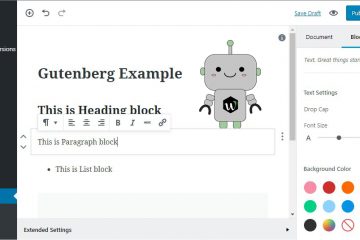At WebCroppers, we always say “Content is king,” but what does that mean? Is it enough to write about a topic centering on the keyword you need to focus on? Can Google and other search engines pick up on bad content? Now, when we say “bad content” we don’t mean the poetic depth of your prose or the entertainment value of your topic. What we’re talking about is relevancy. Is your content relevant and does it provide valuable information to people that are interested in that specific topic? You can write an article about boxes and it’ll probably be boring. However, if your article provides valuable information to people that are interested in boxes and has a certain depth to it, then you have some quality content for your niche.
Bad Content
So what is bad content? Bad content is usually the product of a business trying to hit on the specific keyword they need to get a conversion, without really providing something that’s useful to the user. Some elements of bad content can include: too thin (fewer than 300 words), stuffed keywords, poor grammar, jumbled topics, etc.
What does Google want?
Google’s main goal is to provide the user with the best and most relative content when someone searches for a key term. It achieves this goal most easily when the content is simple to understand. The most common way to achieve good readability is to use small, concise sentences. You don’t want to waste your reader’s time and they don’t want to waste yours. As a business, you could write completely irrelevant content that could bring traffic, but that usually brings people that become confused and frustrated with your site, never to return.
It’s best to stay true to what your site is about.
How to Provide the Best Content
It’s easy to avoid bad content when you know how to compose the good stuff. You’re looking for content that achieves one specific goal and is relevant to your site. As a marketing company, our team often gets asked questions about our specialties; SEO, email marketing, and paid advertising. Writing blogs about SEO is well within our niche and we try to give our readers honest, meaningful answers to these questions. When you have a piece of content that quickly and efficiently answers a question, then you know you’re on the right track.
Let’s break things down a little further.
Content Factors – these are the things you want to do so search engines can crawl and understand your website easily.
H-Tags – Provide the proper H-tags containing your keyword or phrase so search engines can see what’s important about your site.
Keyword – make sure you’re using the most common keywords that people use to search for your specific market or niche.
Readability – Try to keep your sentences short and to the point. Using a passive voice often confuse your message, in addition to making your sentences longer.
Provide Insight – You need to provide something of value to your reader. Often this will be giving the answer to a very specific question that someone needs.
Clarity – Above anything else, make sure your message is clear to the reader.
Conclusion
You can’t write good content with the sole intent of getting conversions. You need to give back to your readers. Keep your SEO in good shape so search engines know what you’re about. Finally, keep your sentences concise so you don’t run the risk of confusing your reader. Now, you should have a good start on producing quality content.


